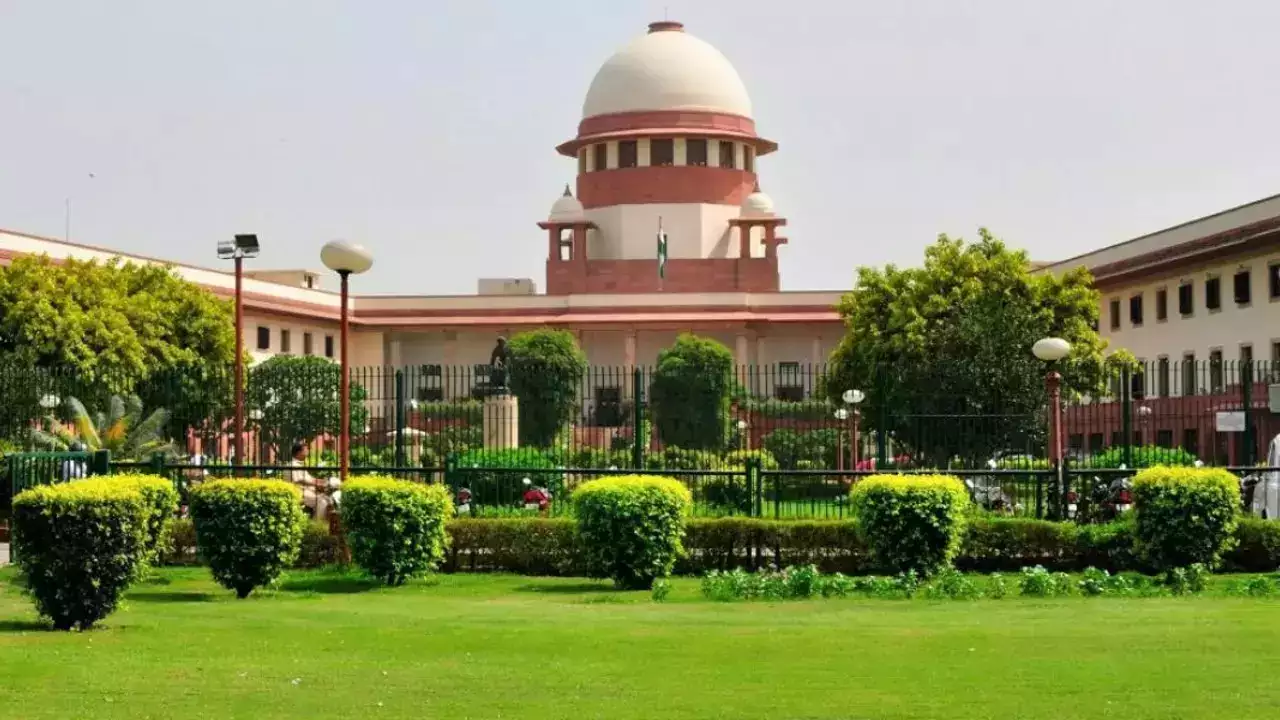Ranveer Allahabadia controversy: SC slams YouTuber for crass remarks but grants interim relief
Justice Kant said that the words he used during the show will make parents, sisters and daughters and the entire society feel ashamed.
The Court had given the Central government four weeks’ time to file its response to the cross-petitions challenging the certain provisions of the 1991 law or backing it.

Supreme Court of India/ File Photo
The Supreme Court will hear on Monday (February 17), a batch of cross-petitions – questioning the validity of the Places of Worship (Special Provisions) Act, 1991, (POWA), and others seeking effective and proper enforcement of the 1991 law – that prohibits the filing of a lawsuit to reclaim a place of worship or seek a change in its character from what prevailed on August 15, 1947.
The batch of cross-petitions are listed before a bench comprising Chief Justice Sanjiv Khanna, Justice Sanjay Kumar, and Justice KV Viswanathan.
Advertisement
In the last hearing of the petitions on December 12, 2024, the Supreme Court had restrained all the courts across the country from passing any effective interim or final order including that of the surveys in pending suits staking a claim over the existing religious structures.
Advertisement
By December 12, 2024, order, bench comprising Chief Justice Sanjiv Khanna, Justice Sanjay Kumar and Justice KV Viswanathan had ordered that no fresh suits can be registered making claims over other religious places while the court is hearing cross-petitions challenging the constitutionality of the Section 3 and 4 if the Places of Worship (Special Provisions) Act, 1991 and others seeking “effective and proper” enforcement of the 1991 law.
The top court by its December 12 order had said, “As the matter is sub judice before this Court, we deem it appropriate to direct that, though fresh suits may be filed, no suits would be registered and no proceedings shall be undertaken therein till further orders of this Court.”
The order had further said that “in the pending suits, no Court will pass any effective interim orders or final orders, including orders directing surveys, etc., till the next date of hearing/further orders of this Court.”
The top court had stated that the hearing would be focused on the questions framed in the matter on October 10, 2022. However, the court kept it open to the parties to suggest any other question, for its consideration, that they like to be adjudicated.
The Court had given the Central government four weeks’ time to file its response to the cross-petitions challenging the certain provisions of the 1991 law or backing it.
The petitioners including a BJP leader and an advocate Ashwini Kumar Upadhyay have challenged the constitutionality of the 1991 law contending Section 3, and 4 of the Places of Worship (Special Provision) Act, 1991, have stated that the 1991 law is void and unconstitutional as it has taken away the right to approach the Court and deprives Hindus, Jains, Buddhists, Sikhs to take back their places of worship and pilgrimage connected with their cultural heritage (Article 29) and it also restricts them from restoring the possession of their places of worship.
The 1991 law, the petitions challenging it, say violates the principles of secularism and rule of law, which is an integral part of the Preamble and basic structure of the Constitution.
However, the Congress Party defending the Places of Worship (Special Provisions) Act, 1991 (POWA), in its intervention application has said that the law is essential to safeguard secularism and any alterations to it could jeopardize India’s communal harmony and secular fabric and threaten its sovereignty and integrity.
The Congress Party in its application has said that it is intervening in the matter “… to emphasize the constitutional and societal significance of the POWA, as it apprehends that any alterations to it could jeopardize India’s communal harmony and secular fabric thereby threatening the sovereignty and integrity of the nation.”
Stating that the Places of Worship Act, 1991, was enacted by the Parliament, as it reflected the mandate of the Indian populace, the Congress Party in its application has said, “In fact, the POWA had been envisaged prior to the year 1991 and the same was made a part of the Congress’ then election manifesto for the Parliamentary elections. The POWA is essential to safeguard secularism in India and the present challenge appears to be a motivated and malicious attempt to undermine established principles of secularism.”
The Places of Worship (Special Provisions) Act, 1991, that prohibits the filing of a lawsuit to reclaim a place of worship or seek a change in its character from what prevailed on August 15, 1947, was enacted by the parliament on 1991 in the thick of Ram Janmabhoomi-Babri Masjid dispute.
The Jamiat Ulama-I-Hind in its petition has sought an “effective and proper” enforcement of the Places of Worship (Special Provision) Act, 1991 and the law laid down in the 2019 unanimous judgment by a five-judge constitution bench in Ayodhya’s Ram Janmabhoomi temple – Babri Masjid case.
Stating that in “blatant violation” of the 1991 law, the Jamiat Ulama-I-Hind in its petition has said that the Muslim religious places are being made the subject matter of frivolous controversies and suits, which are patently barred under the 1991 Places of Worship Act.
Section 3 of the Act bars the conversion of places of worship. It states, “No person shall convert any place of worship of any religious denomination or any section thereof into a place of worship of a different section of the same religious denomination or of a different religious denomination or any section thereof.”
Section 4 bars filing of any suit or initiating any other legal proceeding for a conversion of the religious character of any place of worship, as existing on August 15, 1947.
Advertisement